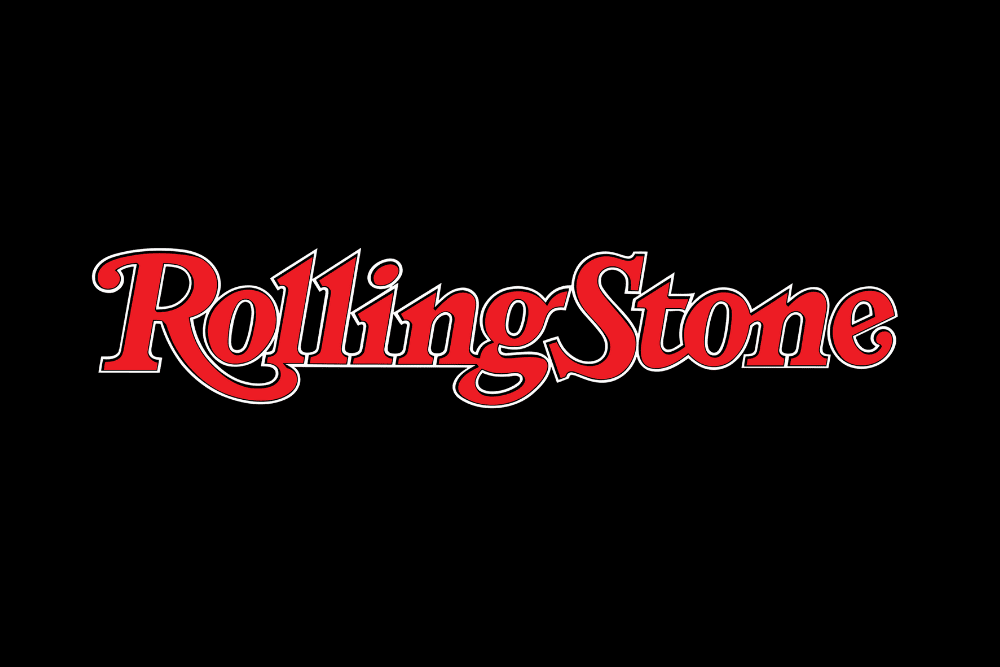When Workplace Conduct Crosses the Legal Line in California
You’ve been dealing with uncomfortable comments at work for months now, and something deep down tells you this isn’t right. Maybe it started with inappropriate jokes during meetings, or perhaps a coworker won’t stop making suggestive remarks despite your requests to stop. Understanding when workplace behavior crosses the line from merely inappropriate to legally actionable sexual harassment is crucial for protecting your rights under California law. The state uses a “severe or pervasive” standard that can seem confusing at first, but knowing what qualifies helps you recognize when it’s time to take action.
💡 Pro Tip: Start documenting every incident immediately, including dates, times, witnesses present, and exact words or actions – this contemporaneous record becomes invaluable evidence if you need to pursue a complaint.
Don’t let inappropriate workplace behavior slide—take charge of your future. Connect with MSD Lawyers today to understand your rights and explore your legal options. Reach out at 213-401-0823 or contact us for a consultation.

Understanding Your Legal Protections Against Sexual Harassment
California provides some of the strongest workplace protections in the nation through both federal and state laws. Sexual harassment in the workplace violates both Title VII of the Civil Rights Act of 1964 and California’s Fair Employment and Housing Act, which means you have multiple avenues for seeking justice. The California Civil Rights Department (CRD) is the state agency charged with protecting Californians from unlawful discrimination in employment, and they’ve made it clear that harassment is prohibited in all workplaces, even those with only one employee or independent contractor on staff.
The legal definition encompasses unwelcome sexual advances, requests for sexual favors, and other verbal or physical conduct of a sexual nature that creates a hostile work environment. What many people don’t realize is that supervisors and coworkers remain personally liable for their own acts of harassment, meaning individual harassers can face consequences beyond just employer liability. If you’re experiencing this type of treatment, a sexual harassment lawyer in Los Angeles can help you understand how these protections apply to your specific situation.
💡 Pro Tip: You don’t need a lawyer to file an initial complaint with the CRD – they offer assistance by phone at 800-884-1684 or can help individuals with disabilities through scribing services or ASL relay.
Breaking Down the ‘Severe or Pervasive’ Standard
Courts and the EEOC evaluate harassment claims on a case-by-case basis, looking at the entire record including the nature of the conduct and the context in which the alleged incidents occurred. This means that what qualifies as severe or pervasive isn’t a one-size-fits-all determination. To be unlawful, the conduct must create a work environment that would be intimidating, hostile, or offensive to reasonable people – not just to you personally, though your subjective experience matters too.
-
Severe conduct might include a single instance of sexual assault, explicit propositions tied to job benefits, or physical touching of intimate body parts
-
Pervasive conduct typically involves repeated incidents over time, such as daily sexual comments, weekly inappropriate jokes, or ongoing display of pornographic material
-
Combined factors where conduct is moderately severe AND somewhat frequent often meets the standard even if neither element alone would qualify
-
Context matters – harassment by a supervisor carries more weight than peer harassment due to the power dynamic
-
Petty slights, annoyances, and isolated incidents (unless extremely serious) will not rise to the level of illegality under federal law
💡 Pro Tip: Courts often find harassment severe or pervasive when it interferes with work performance – if you’ve had to change your schedule, avoid certain areas, or your productivity has dropped due to harassment, document these impacts.
Taking Action with the Right Sexual Harassment Lawyer in Los Angeles
When you’re ready to take action against workplace sexual harassment, understanding your options is essential. You can file a complaint with the appropriate state or federal agency without needing a lawyer to take this initial step. However, working with experienced legal counsel ensures you navigate the complex interplay between state and federal laws effectively. MSD Lawyers has extensive experience helping clients throughout Los Angeles understand whether their experiences meet the severe or pervasive standard under California workplace sexual harassment laws.
The resolution process typically begins with filing a complaint with the California Civil Rights Department, which must happen within three years of the last incident. During this time, put complaints in writing and keep records of each incident of harassment, noting the date, time, and people involved. Remember that in some cases, failure to report the conduct in any way may impact your ability to pursue remedies against your employer, so timely action matters. A sexual harassment lawyer in Los Angeles can guide you through this process while protecting your rights at every step.
💡 Pro Tip: Even if your employer has only one employee, harassment is still illegal in California – don’t let the size of your workplace discourage you from seeking help.
Recognizing Different Forms of Actionable Sexual Harassment
Sexual harassment takes many forms beyond the obvious physical touching or explicit propositions. Offensive conduct may include, but is not limited to, offensive jokes, slurs, epithets or name calling, physical assaults or threats, intimidation, ridicule or mockery, insults or put-downs, offensive objects or pictures, and interference with work performance. Understanding these various forms helps you recognize when you’re experiencing harassment that a sexual harassment lawyer in Los Angeles would consider legally actionable.
Non-Physical Harassment That Courts Take Seriously
Many victims don’t realize that severe harassment doesn’t require physical contact. Courts have found hostile work environments based solely on verbal abuse, such as repeated comments about a person’s body, constant sexual jokes, or persistent requests for dates after clear rejection. The key is whether the conduct unreasonably interferes with your work performance or creates an intimidating, hostile, or offensive working environment. California employment discrimination laws and rights protect you from having to endure this treatment as a condition of keeping your job.
💡 Pro Tip: Screenshots of inappropriate emails, texts, or social media messages provide concrete evidence – save everything, even if it seems minor at the time.
Special Circumstances That Strengthen Harassment Claims
Certain factors can make harassment claims stronger under California law, even if the conduct might not initially seem severe or pervasive enough. Understanding these factors helps you evaluate your situation more accurately and communicate effectively with legal counsel about your experiences.
Power Dynamics and Vulnerable Employees
The law recognizes that employees, applicants, unpaid interns, volunteers, and contractors may file harassment complaints, acknowledging that power imbalances exist beyond traditional employment relationships. Harassment by someone with authority over your job carries extra weight because of the implicit threat to your livelihood. Additionally, if you experience sexual harassment that rises to the level of violence or assault, you should immediately contact law enforcement, as criminal charges may apply alongside civil remedies. These severe instances often meet the legal standard with just one occurrence.
💡 Pro Tip: If multiple people have experienced similar harassment from the same person, their testimony can strengthen your claim – don’t assume you’re alone in this experience.
Employer Training Requirements and Your Rights
California takes prevention seriously, which is why employers with 5 or more employees are required to provide sexual harassment prevention training to all supervisory and nonsupervisory employees. This requirement reflects the state’s recognition that California workplace sexual harassment remains a serious problem requiring proactive measures. When employers fail to provide this training or ignore its lessons, it can strengthen your harassment claim.
How Training Failures Impact Your Case
When an employer skips required training or provides inadequate training, courts may view subsequent harassment more seriously. This is especially true if the harasser is a supervisor who should have received training on preventing harassment. A sexual harassment lawyer in Los Angeles will investigate whether your employer met their training obligations, as this can demonstrate the company’s failure to take harassment prevention seriously. The absence of proper training protocols often indicates a workplace culture that tolerates inappropriate behavior.
💡 Pro Tip: Ask HR for copies of training records and anti-harassment policies – if they can’t produce them or they’re outdated, this could support your claim.
Frequently Asked Questions
Understanding the Legal Standards
Many people struggle to understand when inappropriate workplace behavior becomes illegal harassment. These questions address the most common concerns about meeting the severe or pervasive standard.
💡 Pro Tip: Don’t wait for harassment to become “bad enough” – early consultation with an attorney can help you understand your options and preserve evidence effectively.
Next Steps and Legal Process
Once you recognize that you’re experiencing severe or pervasive harassment, knowing what to do next can feel overwhelming. Understanding the process helps you move forward with confidence.
💡 Pro Tip: Keep a copy of all harassment documentation outside of work – never rely solely on work computers or email accounts that your employer controls.
1. What if the harassment is verbal only – does that meet the severe pervasive harassment California standard?
Yes, verbal harassment alone can absolutely meet the legal standard. Courts regularly find that persistent sexual comments, inappropriate jokes, or verbal propositions create hostile work environments. The key is whether the verbal conduct is frequent enough (pervasive) or shocking enough (severe) to alter your working conditions. Document every instance, as patterns of verbal harassment often satisfy the pervasive element of the standard.
2. How many incidents typically qualify as “pervasive” for a Los Angeles Sexual Harassment lawsuit?
There’s no magic number – courts examine the totality of circumstances. Weekly incidents over several months often qualify as pervasive, but even a few incidents can suffice if they’re particularly severe or create a pattern of escalating behavior. Factors like the harasser’s position, whether you complained and harassment continued, and the impact on your work all influence this determination.
3. Can one extremely inappropriate incident qualify as severe under California sexual harassment legal definition?
Absolutely. A single incident of sexual assault, groping, or an explicit quid pro quo proposition (sex for job benefits) typically meets the severity standard. Courts have also found single incidents severe when they involve graphic sexual imagery, explicit threats, or conduct that would shock a reasonable person. The more egregious the behavior, the less repetition is needed.
4. What if my employer says the harasser was “just joking” – how do Los Angeles Sexual Harassment laws address this?
California law is clear: the harasser’s intent doesn’t matter – what matters is the effect on you and whether a reasonable person would find the environment hostile. Offensive jokes, even if the harasser claims they’re “just kidding,” can create illegal harassment when they’re sexual in nature and either severe or pervasive. Employers can’t dismiss harassment by labeling it as humor.
5. How soon should I contact a Los Angeles workplace harassment attorney after incidents begin?
The sooner you consult with an attorney, the better positioned you’ll be to protect your rights. Early consultation helps you understand what evidence to gather, how to properly report harassment internally, and when to file formal complaints. You have three years to file with the CRD, but waiting can make evidence harder to collect and memories less reliable. Many attorneys offer free consultations to evaluate whether your situation meets the severe or pervasive standard.
Work with a Trusted Sexual Harassment Lawyer
Determining whether workplace conduct meets California’s severe or pervasive standard requires careful analysis of your specific situation. While you can begin the complaint process on your own, having experienced legal guidance ensures you present the strongest possible case. An attorney can help you understand how courts in Los Angeles County have interpreted these standards, identify evidence you might have overlooked, and navigate both state and federal filing requirements. Most importantly, they can advocate for your rights while you focus on your well-being and career. If you’re experiencing workplace sexual harassment, don’t wait for it to escalate – reach out for a confidential consultation to understand your options and protect your future.
Don’t wait to take control if workplace harassment is affecting you. Reach out to MSD Lawyers for a confidential discussion about resolving your situation. Dial 213-401-0823 or contact us to explore your options now.












